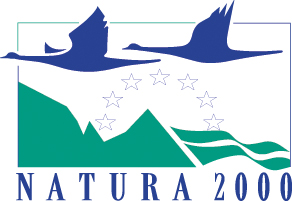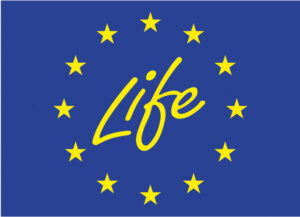Last week, the European Commission published a list of 12 large environmental and climate projects from 10 Member States, which will invest 116.1 million euros in through LIFE programme. Among them are the first two integrated projects for Slovenia, LIFE-IP NATURA.SI and LIFE IP CARE4CLIMATE, which were prepared by the Ministry of the Environment and Spatial Planning in collaboration with numerous partners.
The total budget of 12 approved projects is 215.5 million euros, of which 116.1 million will be contributed by the European Commission through the LIFE programme. New funds from the LIFE programme will, in combination with other sources, mobilize more than 3.2 billion of additional support for the so-called integrated LIFE projects, as Member States can also use other public or private financial resources, including agricultural, regional and structural funds, and national funds. By co-financing, the Commission will support the implementation of environmental and climate measures in Austria, Bulgaria, the Czech Republic, Estonia, Finland, Greece, Hungary, Italy, Portugal and Slovenia, thus supporting Europe’s transition to a low carbon circular economy, helping to preserve nature in Europe and improving quality life of Europeans. For Slovenia, these are the first two integrated projects.
LIFE-IP NATURA.SI
LIFE integrated project for enhanced management of Natura 2000 in Slovenia (LIFE17 IPE/SI/000011)

Numerous foreign and domestic studies confirmed that Slovenia is among EU countries with the highest biodiversity, which is also evident in a high share of its territory included in the Natura 2000 network (38%). From 2016, when Slovenia lastly enhanced the Natura 2000 network, this network is aiming for conservation of 236 species (including birds) and 60 habitat types, and it comprises of 355 sites, 324 SACs established under the Habitats Directive and 31 SPAs under the Birds Directive. Both Directives also dictate that each member state has to determine the conservation measures. The measures are set in the Natura 2000 Management programme.
Since Slovenia has a well-developed management planning system, especially for natural resources such as forests, water, fisheries and hunting, our country has already adopted a management plan for Natura 2000 sites in the past years (2007-2013, 2015-2020), which relies heavily on existing systems. The Government of the Republic of Slovenia has adopted the Natura 2000 Management Programme for the period 2015-2020 in April 2015. But in the field, the management of the Natura 2000 network in Slovenia does not take place equally effectively in all areas. There are gaps in individual areas that cannot be resolved with existing financial and human resources. For this reason, the Ministry of the Environment and Spatial Planning (MESP) decided to apply for an integrated nature project with which these gaps will be filled.
Therefore the aim of LIFE IP-NATURA.SI project is to:
- Enhance implementation of national Natura 2000 Management Programme;
- Connect key stakeholders and available approaches in nature conservation;
- Connect results, knowledge and best practices gained in IP, traditional LIFE, complementary and other projects;
- Enable an enhanced uptake of these results in national, systemic level;
- Establish a long-term result orientated and inclusive management of Natura 2000 in Slovenia.
In the 8-year project (scheduled to end on December 31, 2026) participate 15 partners. The MESP as the lead partner coordinates the project. Most of the public institutions involved in the project are concerned with the management of the Natura 2000 network (besides MESP, the Ministry of Agriculture, Forestry and Food, the Institute of the Republic of Slovenia for Nature Protection, Slovenian Water Agency, the Fisheries Research Institute of Slovenia, Slovenia Forest Service and the Chamber of Agriculture and Forestry of Slovenia with three regional Agriculture and Forestry Institutes – KGZ Ptuj, KGZ Nova Gorica and KGZ Ljubljana). Three research institutions will contribute their knowledge and experience to the project: the Slovenian Forestry Institute, the National Institute of Biology and the University of Ljubljana, the Biotechnical Faculty, the Biology Department; and two private institutes: Štirna – zavod za trajnostne rešitve and the Centre for Cartography of Fauna and Flora .
LIFE-IP NATURA.SI is the first large project, which is at the same time connecting and enhancing implementation of the nature conservation measures, financed by EU and national funds. The total project budget is 17,007,204 €. The contribution of the European commission through LIFE programme is 10.2 million (oz. 60 %), 5 million will contribute the State Budget through the activities of both participating ministries and Slovenian Water Agency, the final 1.8 million will contribute other partners.
LIFE-IP NATURA.SI project website
Description of LIFE-IP NATURA.SI project on LIFE website
LIFE IP CARE4CLIMATE
Boosting greenhouse gas emissions reduction by 2020 with a view to 2030 – promoting sustainable transport, energy efficiency, renewable energies and sustainable, climate protecting land use in the transition to low carbon society (LIFE17 IPC/SI/000007)
The Government of the Republic of Slovenia has adopted the Operational Plan for greenhouse gas reduction by 2020 (with a view to 2030) (OP GHG) in December 2014. The mentioned Operational plan defines measures needed for Slovenia to meet its greenhouse gas emission reduction target to reduce the GHG emissions by 2020 with a view to 2030 in particular sectors (transport, energy use, agriculture, waste management, industry outside EU ETS).
Therefore the Ministry of the Environment and Spatial Planning (MESP) in collaboration with 14 partners prepared the LIFE IP CARE4CLIMATE project, in order to address the gaps and weaknesses occurring during the implementation of OP GHG and of national Action Plan for Energy Efficiency 2014-2020. The aim of the project is to enhance the implementation of the defined measures through awareness raising, educating and training of the key stakeholders. The project will increase resources and competencies to enable measures to be well-prepared and implementation to be better coordinated. This will involve a focus on improving stakeholder capacity and involvement and on the modernization of organizational procedures for the preparation of new legal instruments. The main expected results are improved sustainable mobility, energy efficiency of buildings and carbon stock (carbon sequestration). Also a national heat map will be prepared along with a heating and cooling action plan through 2030 and a national heating and cooling strategy to 2050.
The project is coordinated by MESP. Associate beneficiaries are: the Ministry of Infrastructure, the Jožef Stefan Institute, the ZRMK Building and Civil Engineering Institute, the Slovenian Forestry Institute, Eco Fund – Slovenian Environmental Public Fund, Umanotera – the Slovenian Foundation for Sustainable Development, Focus – Association for Sustainable Development, the Research Centre of the Slovenian Academy of Sciences and Arts, University of Maribor, ZUM urbanizem, planiranje, projektiranje d.o.o., the Urban Planning Institute of Republic of Slovenia, the Slovenian National Building and Civil Engineering Institute, the Institute for Spatial Policies and Digitalna Agencija, agencija za spletno oglaševanje d.o.o.
The total project budget is 27,272,129 €. The contribution of the European commission through LIFE programme is 7 million € (oz. 25.73 %). MESP will contribute is 18.4 million and the 14 partners 1.9 million.
Description of LIFE IP CARE4CLIMATE project on LIFE website
Integrated projects
 Each year, the European Commission publishes a call for co-financing projects with a grant from the LIFE programme. LIFE is a centralized European financial mechanism that finances the implementation of measures in the field of environmental protection, nature conservation and climate change adaptation and mitigation. One of the project types co-financed by the LIFE programme is the so-called integrated project. The purpose of these projects is to improve the quality of life of residents by supporting Member States in harmonizing European legislation in five areas: nature, water, air, waste and climate (climate change mitigation and climate change adaptation). They support the implementation of environmental or climate strategies or plans necessary for coordinated implementation of EU environmental and climate legislation in a large territorial area (especially at regional, interregional, national or transnational levels). In the case of integrated projects, it is necessary to ensure the involvement of stakeholders and to obtain at least one relevant additional source of funding (from the EU, national or private sources).
Each year, the European Commission publishes a call for co-financing projects with a grant from the LIFE programme. LIFE is a centralized European financial mechanism that finances the implementation of measures in the field of environmental protection, nature conservation and climate change adaptation and mitigation. One of the project types co-financed by the LIFE programme is the so-called integrated project. The purpose of these projects is to improve the quality of life of residents by supporting Member States in harmonizing European legislation in five areas: nature, water, air, waste and climate (climate change mitigation and climate change adaptation). They support the implementation of environmental or climate strategies or plans necessary for coordinated implementation of EU environmental and climate legislation in a large territorial area (especially at regional, interregional, national or transnational levels). In the case of integrated projects, it is necessary to ensure the involvement of stakeholders and to obtain at least one relevant additional source of funding (from the EU, national or private sources).





